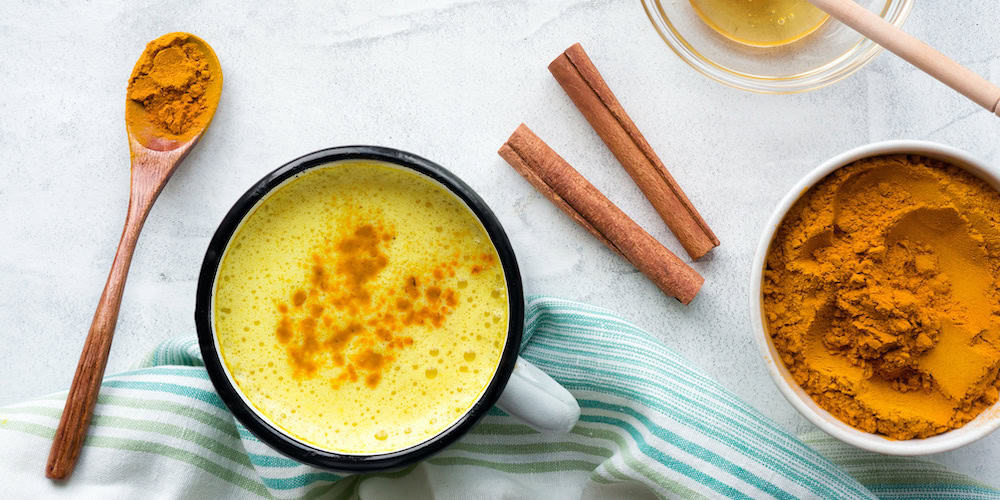You might be looking for ideas for drinks to replace morning coffee or your midday espresso.
For arabica or robusta drinkers, it is advisable not to exceed two to three cups of coffee per day (400 mg) to avoid its side effects: palpitations, digestive problems, disturbed sleep, tremors, dehydration…
Whether it’s a matter of taste or primarily to reduce caffeine intake, exploring new options for staying hydrated is an interesting health and wellness approach.
So, what can you drink instead of coffee? I’m sharing with you 10 delicious choices to adopt, stimulating drinks with and without caffeine and their various benefits.
1. Green tea, the antioxidant drink
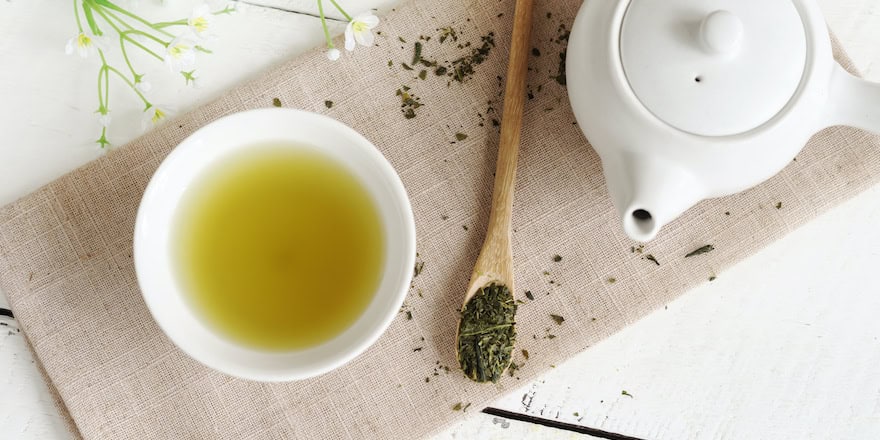
A delicate flavor, rich in polyphenols and catechins, with EGCG especially beneficial for health, green tea is an excellent alternative to coffee.
Although it contains theine, a molecule similar to caffeine, 1 cup of green tea contains less than 50 mg, which is half that of coffee.
Most importantly, it doesn’t act the same way. Thanks to its antioxidants, green tea promotes alertness with a gradual release of caffeine.
It is energizing without being agitating, without that jolt effect of coffee. In the morning and throughout the day, prepare yourself a hot drink.
If you want to decaffeinate it, let it infuse for a few seconds and discard this first water. Infuse the same leaves again, this trick helps reduce caffeine content.
2. Yerba mate, the stimulating drink
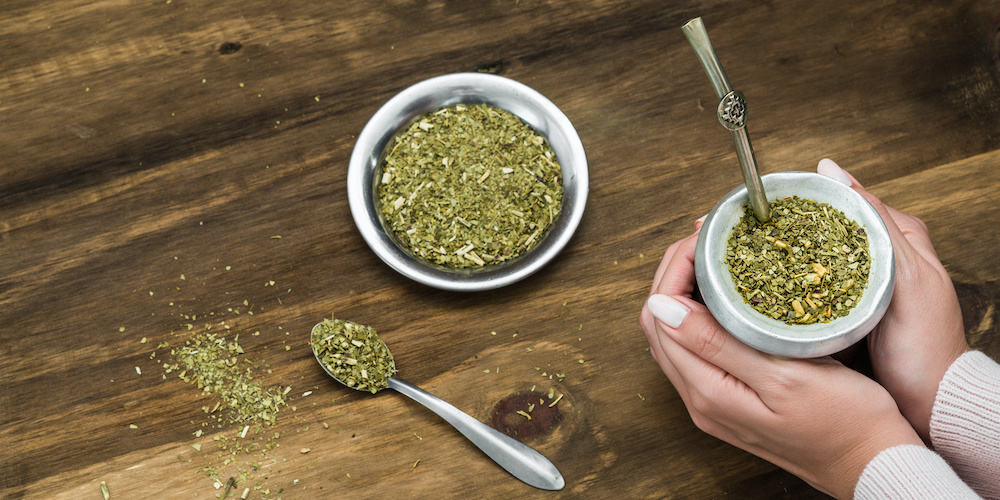
A plant from South America, mate is highly appreciated by athletes. Its caffeine content is quite similar to that of coffee.
Its greenish color and flavor reflect its herbal origin, a notable difference from coffee. It is prepared with hot water, at a maximum of 80°C. Mate can be infused several times until the taste is less pronounced.
An antioxidant drink and performance booster, it has more and more followers, with or without a “bombilla” (traditional gourd).
📚 Read also | How to choose the best yerba mate?
3. Guarana, the anti-fatigue plant
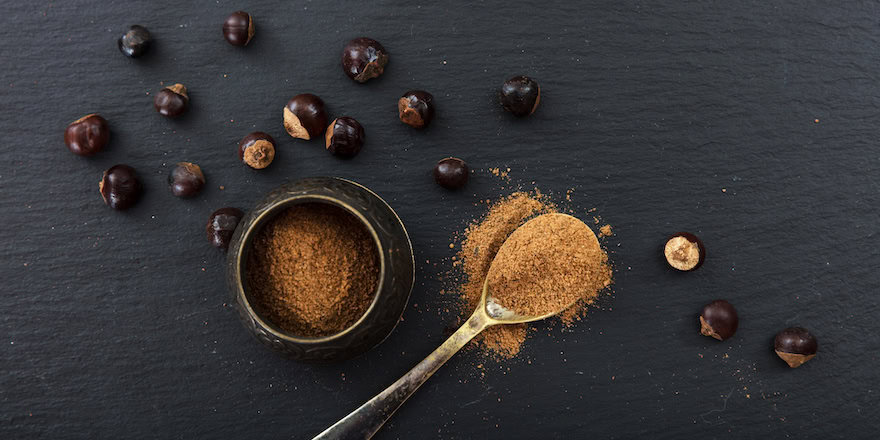
Another plant from South America, particularly Brazilian in origin, guarana has a higher caffeine content than coffee.
To reduce fatigue and increase energy and alertness, guarana is also recognized for its possible benefits in the prevention of obesity and metabolic disorders.
It is preferably consumed in powder form rather than in capsules or sodas. Guarana has a distinctive and pronounced taste that can be mixed with fruit juice or a smoothie to soften it.
The recommended daily dosage of guarana is 50 to 75 mg, enough to feel its benefits, and a maximum of 250 mg per day.
📚 Read also | Where to buy guarana?
4. Cocoa for indulgence
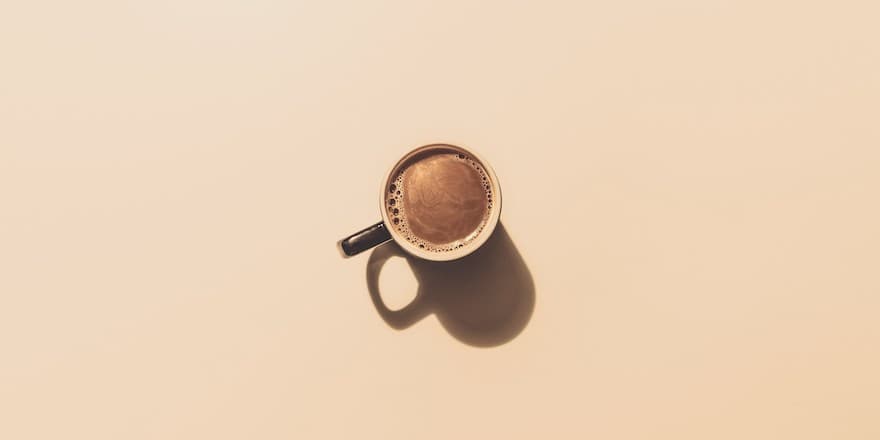
Comforting, cocoa powder has a natural sweetness that coffee cannot imitate. As for its caffeine content, it is much lower with 4 to 5 mg per cup.
According to your taste, the cocoa drink can be made with water, milk, or a hot plant-based drink.
Low in fat and sugar, contrary to popular belief, cocoa is an excellent health drink. Its richness in flavonoids gives it anti-inflammatory, anti-diabetic, anti-steatosis, and memory-protective effects.
🎧 Listen to our podcast | Incredible chocolate
5. Matcha, the cognitive function ally
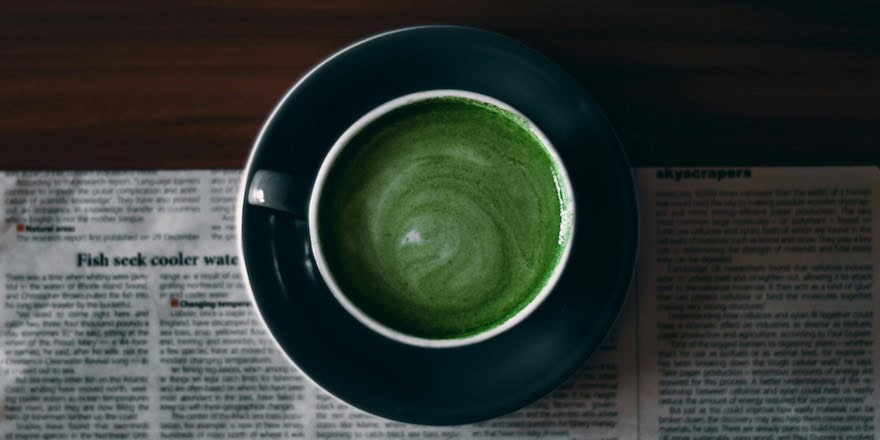
An anti-stress drink, this Japanese green tea is a powder made from finely ground tea leaves. It is particularly rich in antioxidants and l-theanine, more so than other teas.
This amino acid promotes relaxation and concentration. Studies have even shown that consuming matcha daily can help better cope with stressful situations.
When preparing it, pour the matcha tea powder into a bowl and whisk the mixture until you get a nice foam.
Its delicate aromas are nonetheless full of energy and benefits. Its caffeine content is 3 to 4 times less concentrated than coffee. However, this is what makes its stimulating effect more stable.
6. Chicory for its resemblance to coffee
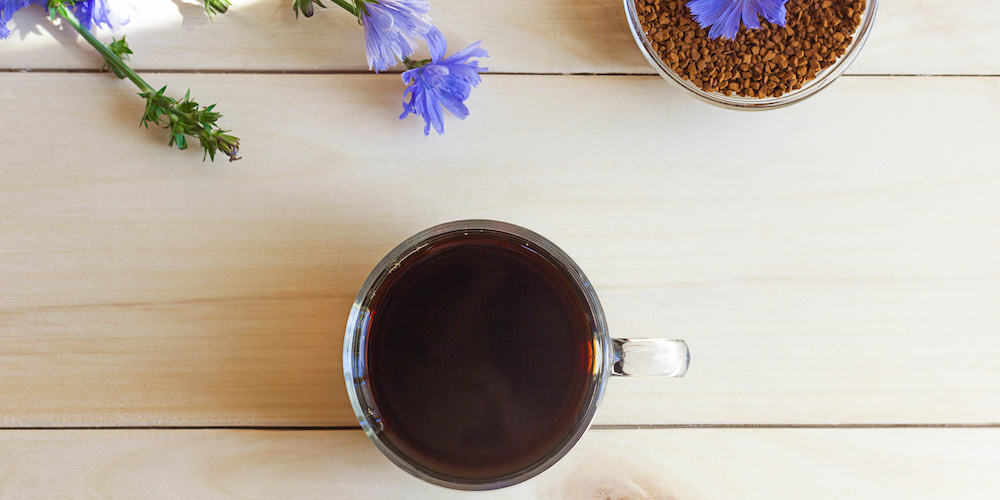
It is the roots of this pretty blue flower that, once roasted, turn into a delicious beverage. Caffeine-free and similar to coffee in terms of taste and color, chicory has it all.
A draining and cleansing drink rich in inulin, vitamins, and minerals, chicory takes care of liver and intestinal health.
It also helps regulate appetite. To replace your morning coffee, you can have a cup of chicory with 1 to 2 teaspoons in 125 ml of hot water and another in the evening, before dinner.
7. Rooibos, the South African infusion
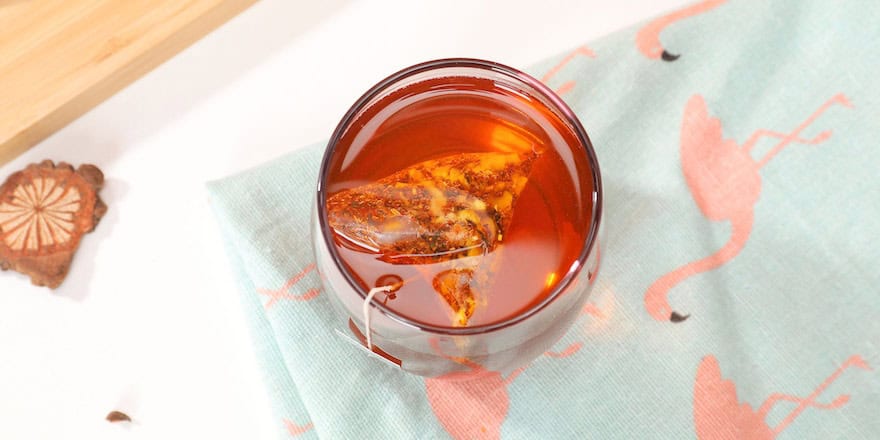
This caffeine-free red tea offers many benefits thanks to its polyphenols. Its organoleptic qualities bring real smoothness at any time of the day.
Not quite a tea because it comes from a shrub and not the tea tree, rooibos is also known for relieving stomach cramps.
Preferably, let infuse fresh rooibos leaves for 5 to 10 minutes in hot water to release its active ingredients. You can also choose it in a sachet.
8. Maca or the Peruvian energizer
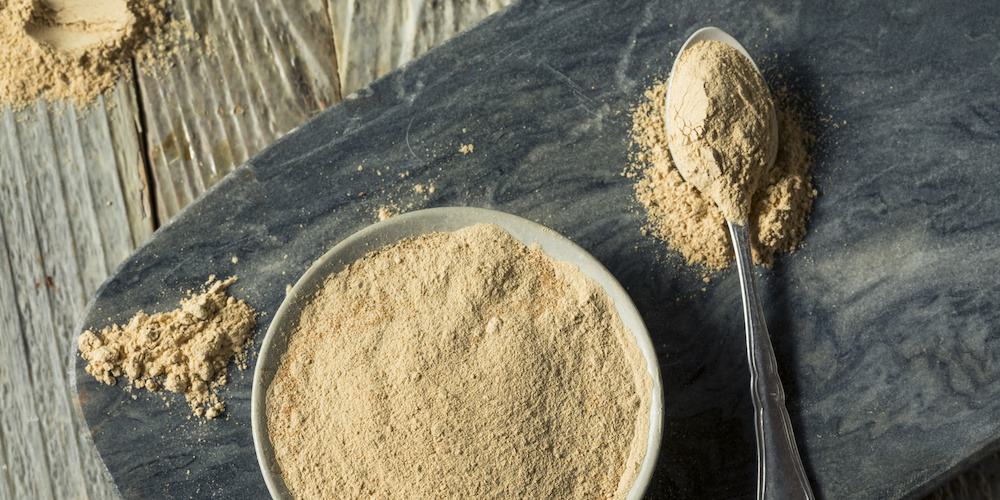
This energizing plant is also consumed to support hormonal balance in both women and men.
Natural aphrodisiac for some or source of vitality for others, maca is a solid member of the superfood family.
You can find this ingredient in powder form in organic stores or pharmacies. To prepare your maca drink, use cold water or sprinkle over yogurts, smoothies, or oatmeal.
📚 Read also | What to know before buying maca
9. Golden Milk, the Ayurvedic drink
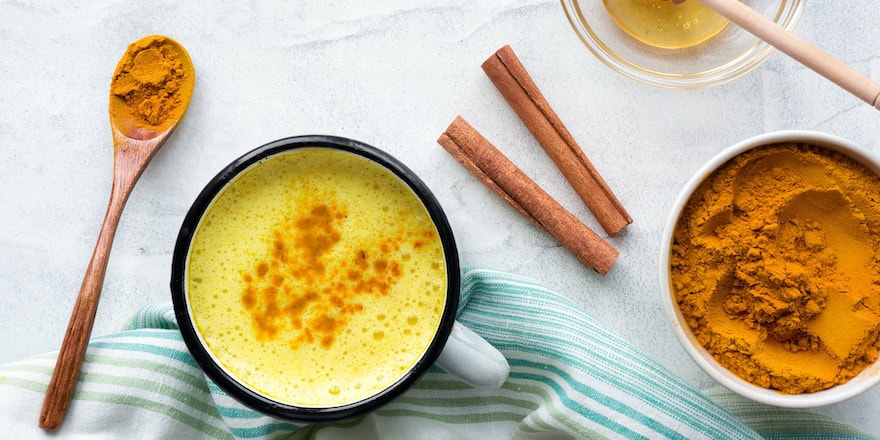
An Indian-origin drink, golden milk is a traditional recipe made from plant-based milk and turmeric, black pepper, and a mix of spices.
While this warm drink soothes and comforts, the full anti-inflammatory potential of the contained spices is a true asset.
Heat the milk over low heat and add the spices while letting it simmer for a few minutes. To promote restorative sleep, you can drink a cup of golden milk before bed.
10. Ginseng, the adaptogenic root
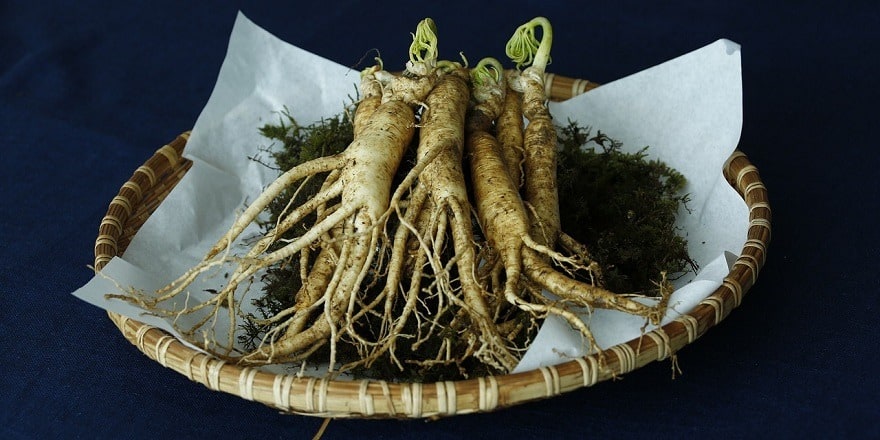
Because its action is favorable for reducing physical and psychological stress, Panax ginseng is one of the most popular adaptogenic plants.
Without side effects, ginseng helps reduce fatigue while boosting cognitive and physical performance. It helps the body better cope with different situations and fights against lack of motivation.
In a pot of boiling water, submerge the previously cut pieces of ginseng. Let them infuse for 15 minutes then strain the water: your tonic decoction is ready.
📚 Read also | What is the best ginseng? A pharmacist’s opinion
Sources and scientific studies
Habitual intake of guaraná and metabolic morbidities: an epidemiological study of an elderly Amazonian population – Cristina da Costa Krewer, Euler Esteves Ribeiro, Ednéa Aguiar Maia Ribeiro, Rafael Noal Moresco, Maria Izabel de Ugalde Marques da Rocha, Greice Franciele Feyl dos Santos Montagner, Michel Mansur Machado, Karin Viegas, Elorídes Brito, Ivana Beatrice Mânica da Cruz, 2011
Yeyi Gu 1 , Shan Yu, Joshua D Lambert – Dietary cocoa ameliorates obesity-related inflammation in high fat-fed mice, 2014
Yoshitake Baba, Toshiyuki Kaneko Takanobu Takihara – Matcha consumption maintains attentional function following a mild acute psychological stress without affecting a feeling of fatigue: A randomized placebo-controlled study in young adults, 2020
Fouré M, Dugardin C, Foligné B, Hance P, Cadalen T, Delcourt A, Taminiau B, Daube G, Ravallec R, Cudennec B, Hilbert JL, Lucau-Danila A. – Chicory Roots for Prebiotics and Appetite Regulation, 2018
Jeanine L Marnewick, Fanie Rautenbach, Irma Venter, Henry Neethling, Dee M Blackhurst, Petro Wolmarans, Muiruri Macharia – Effects of rooibos on oxidative stress and biochemical parameters in adults at risk for cardiovascular disease, 2010
Gustavo F Gonzales – Ethnobiology and Ethnopharmacology of Lepidium meyenii, a Plant from the Peruvian Highlands, 2012
Hoang Viet Bach, Jeongseon Kim, Seung Kwon Myung, Young Ae Cho – Efficacy of Ginseng Supplements on Fatigue and Physical Performance: a Meta-analysis, 2016


